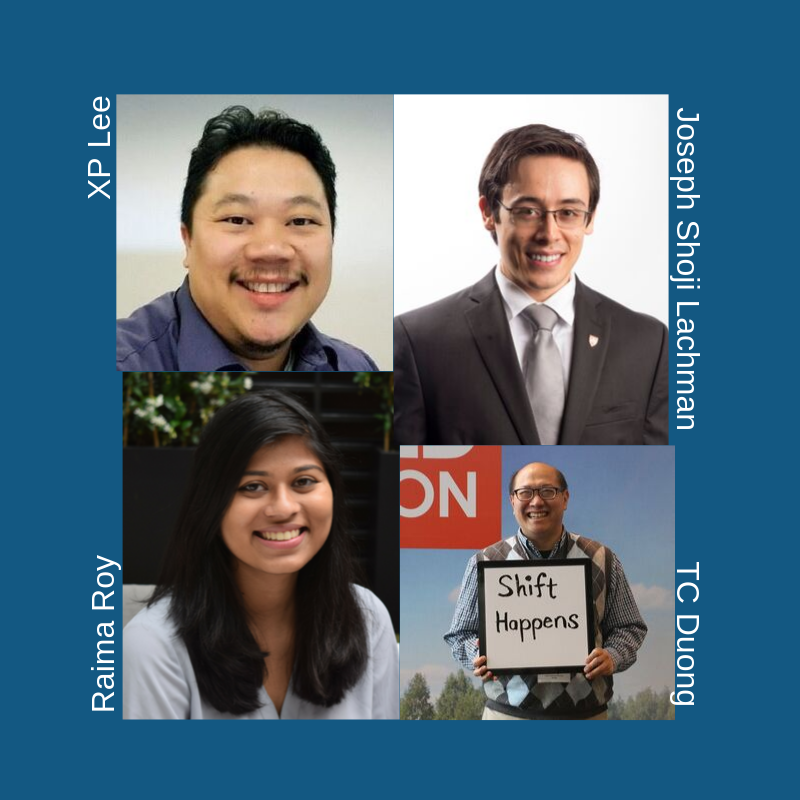
Tools to Engage Webinar Series Part 7: Census, the Citizenship Question, and the Community and Organizational Response
This 60-minute webinar moderated by BMP’s Networking and Learning Manager TC Duong and featuring XP Lee Program Manager for Policy & Special Projects with the Minnesota Council on Foundations, Joseph Shoji Lachman ACRS Civic Engagement Program Manager with Asian Counseling and Referral Service, and Raima Roy from Asian Americans Advancing Justice. These speakers helped explain why being counted in the Census is so important, especially for historically undercounted communities, and how the Trump administration’s efforts to include a question about citizenship in the 2020 Census has erected further barriers to a full and inclusive count. During the webinar, participants also learned about how Asian American and Pacific Islander organizations and networks are organizing and mobilizing around Census 2020 and what shifts they have made to fight back against the citizenship question.
In case you missed the webinar, we’ve made it easy to watch a recording and download the slides.
The links and resources mentioned during the webinar include:
- HmongCensus.org
- Facebook Page for the Washington Census Alliance: https://www.facebook.com/CensusAllianceWA/
- https://www.countusin2020.org/partner-resources
- Washington Census Alliance – info@wacensusalliance.org
- https://mcf.org/2020-census-and-american-community-survey
- Race to Lead Survey: bit.ly/RacetoLeadSurvey
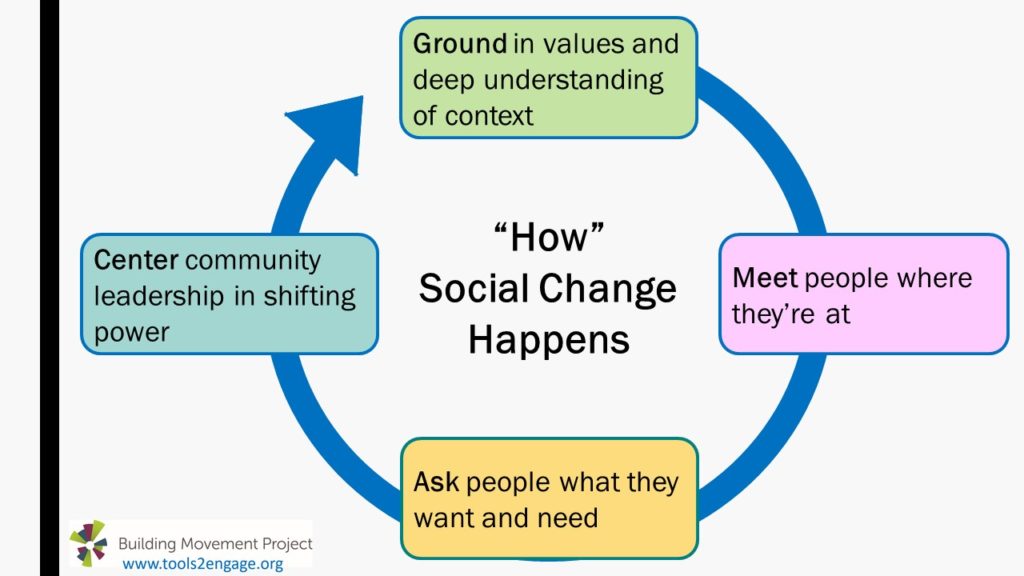
Tools to Engage Part 5: How Social Change Happens, The View From Detroit
How can service providers and organizing groups work together to shift power? Find out in this 60-minute webinar featuring Reverend Roslyn Bouier from the Brightmoor Connection Client Choice Food Pantry and Kea Mathis, Family Engagement Organizer from the Detroit People’s Platform. Rev Roslyn and Kea share insights from the work they are doing in Detroit, and the components that make their approach and partnership unique and justice-oriented. In particular, they explain how their partnership helps connect the dots between food insecurity and public policies that undermine families and put them further at risk, while building community leadership to shift power. Viewers will leave with concrete examples, tools, and next steps for integrating service and social change to address the root causes leading clients to seek services in the first place.
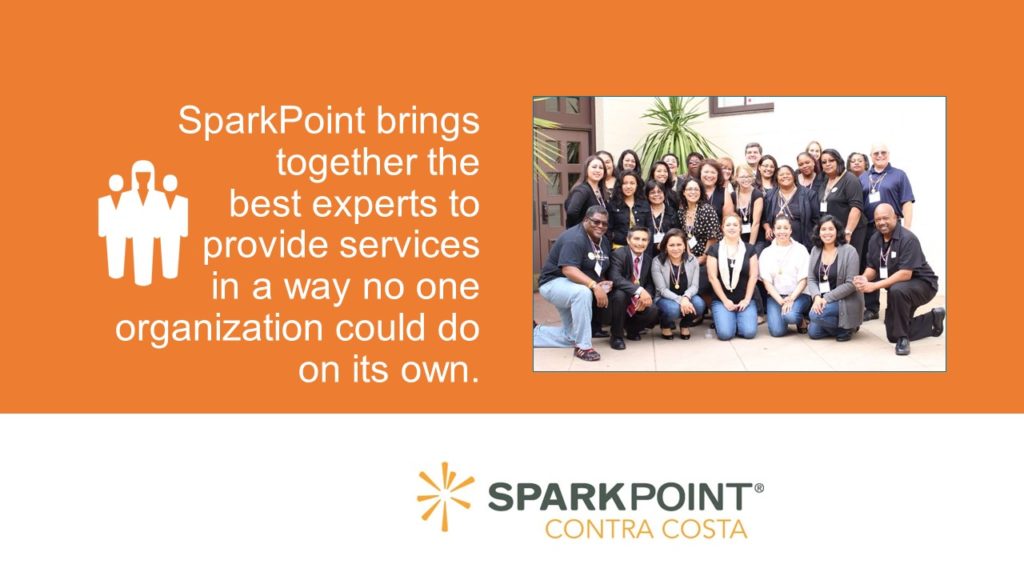
Tools to Engage Webinar Series Part 3: A Deeper Dive into Advocacy
Now, more than ever, direct service organizations are being called upon to advocate for individuals as well as for policy change. By integrating service and social change, organizations can continue to effectively provide needed services, while addressing the root causes that make services necessary. You may be wondering:
- What would integrating service and social change look like for your organization?
- What are some steps you can take, no matter where you are in the process, to more actively engage your constituents?
- How can you build on skills you and your staff already have to make a seamless transition to policy advocacy?
To address these, and many more questions, BMP hosted a webinar (part of our Tools to Engage webinar series) to lift up the work one organization is doing to integrate policy advocacy into the work they’re already doing. In an interview with project consultant Judi Sherman, Executive Director of SparkPoint Contra Costa, Betty Geishirt Cantrell, shared her organization’s experience of volunteering to engage in a “deeper dive” to assess their capacity to integrate policy advocacy into their current service provision and develop a plan for future action. Takeaways include an understanding of the factors helped make this “deeper dive” a success, how the process changed the organization, and how integrating service and social change might not be such a big leap after all.
Watch the recording here, and download a PDF of the slides.
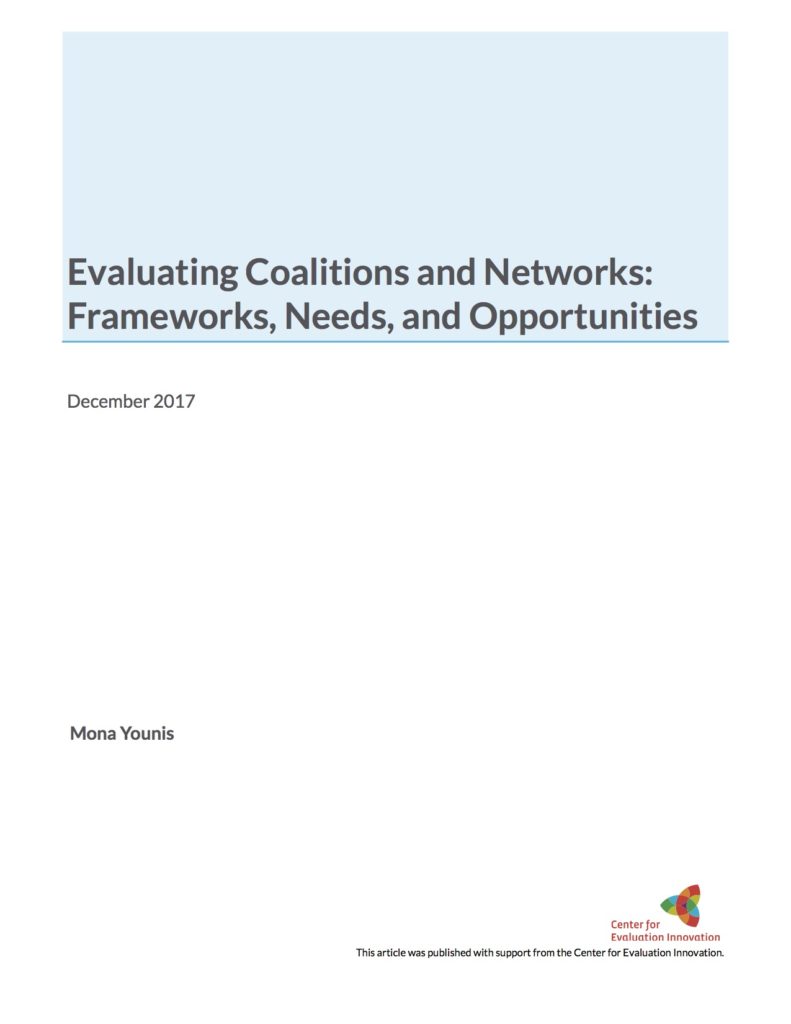
Evaluating Coalitions and Networks: frameworks, needs, and opportunities
Evaluators have developed an impressive array of approaches, frameworks, and tools to support both coalitions/networks and their funders. The report explores these developments, and points to challenges and opportunities that remain in efforts to assess the effectiveness and impact of coalitions/networks.
This review is for coalitions and networks that are considering embarking on evaluation. It begins with what makes coalitions and networks different from standalone organizations, and the implications for evaluation. It then reviews five selected evaluation frameworks, highlighting their advantages, limitations, and applicability. Finally, it offers a set of lessons and opportunities related to coalition/network evaluation based on real-life experiences, along with insights for funders on how best to support evaluation of the coalitions/networks they support.
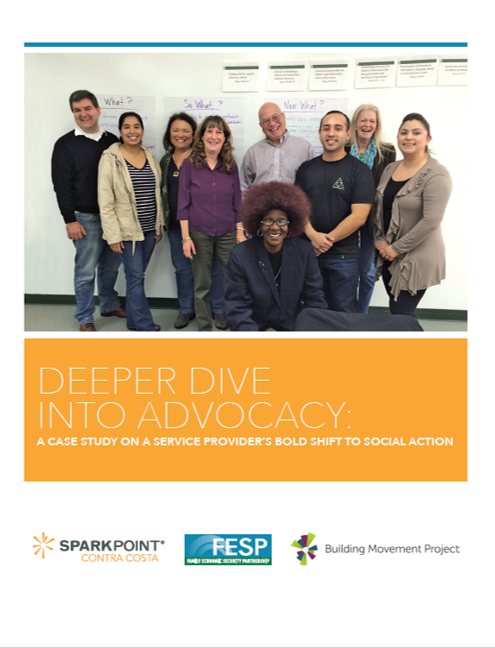
Deeper Dive into Advocacy: A Case Study on a Service Provider’s Bold Shift to Social Action
Family Economic Security Partnership (FESP), SparkPoint Contra Costa, and the Building Movement Project engaged in a six month process to assess SparkPoint Contra Costa’s interest and capacity to engage in policy advocacy. The resulting case study presents how SparkPoint Contra Costa, a direct service organization, built on its strength as an advocate for individuals to begin advocating for policy and larger system issues. The information includes an overview of types of advocacy and tips and tools for other organizations interested in adding social change activities to their daily practice.
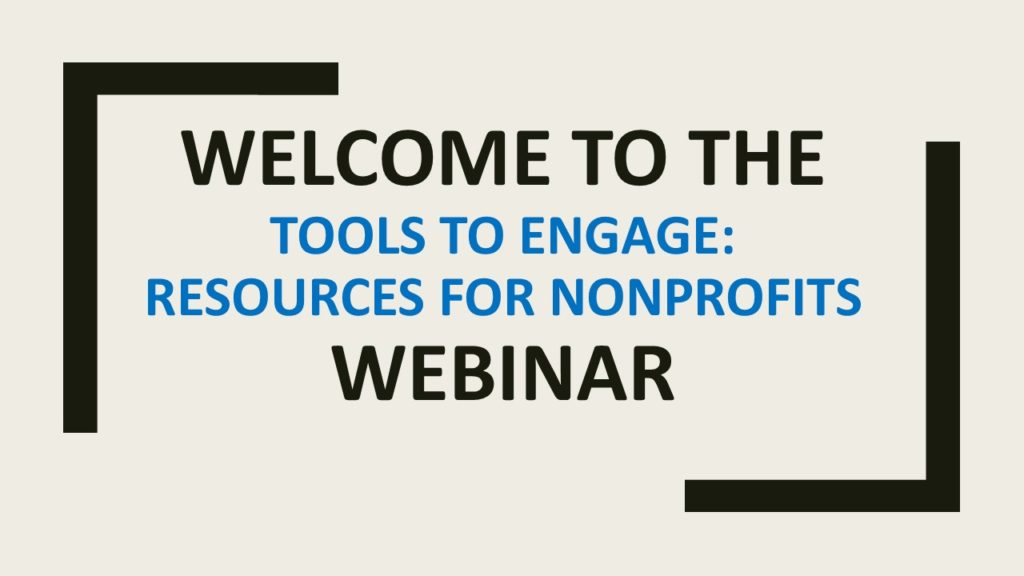
Tools to Engage Webinar Series Part 1: Engage to Change
Maria Mottola, Executive Director of the New York Foundation and Julia Watt-Rosenfeld, Director of Community Organizing and Advocacy at Cypress Hills Local Development Corporation join BMP staff for the first Tools to Engage Webinar to discuss the development and implementation of the “Engage to Change” guide.
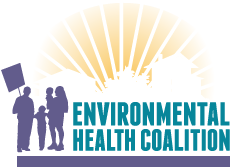
SALTA Leadership Training
SALTA (Salud Ambiental Lideres Tomando Accion – Environmental Health, Leaders Taking Action) is a web-based, interactive leadership development curriculum that provides community leaders with skill-building training in community organizing, policy advocacy, building power, community health, environmental justice and effective communication.
SALTA is a key component to ensuring that EHC achieves our core mission. More than education, SALTA is integrated with EHC’s organizing and advocacy efforts to achieve environmental and social justice.
SALTA programs represent the organic educational efforts of the different campaigns, teams, leaders, and staff that make up EHC and were designed specifically for our leaders based on our local efforts. We began SALTA trainings in 1996, and now more than 2,000 individuals have been trained.
Developed and field tested by EHC staff and leaders during the past 15 years, SALTA uses a popular education approach that makes the training inclusive and accessible to all participants. Trainings are based on the knowledge, skills and real-world experiences of EHC staff, leaders and training participants.
Popular education, which has varying interpretations, is best defined by the practice where participants share their own understanding and feelings about a specific topic or issue and that understanding and feelings are considered valid. The idea of popular education (often described as “education for critical consciousness”) as a teaching methodology came from a Brazilian educator and writer named Paulo Freire, who was writing in the context of literacy education for poor and politically disempowered people in his country. It’s different from formal education (in schools, for example) and informal education (learning by living) in that it is a process which aims to empower people who feel marginalized socially and politically to take control of their own learning and to effect social change.
The SALTA sessions improve participants’ sense of belonging to a community as participants and stakeholders of their societies. They begin to see themselves as empowered members who can make change.
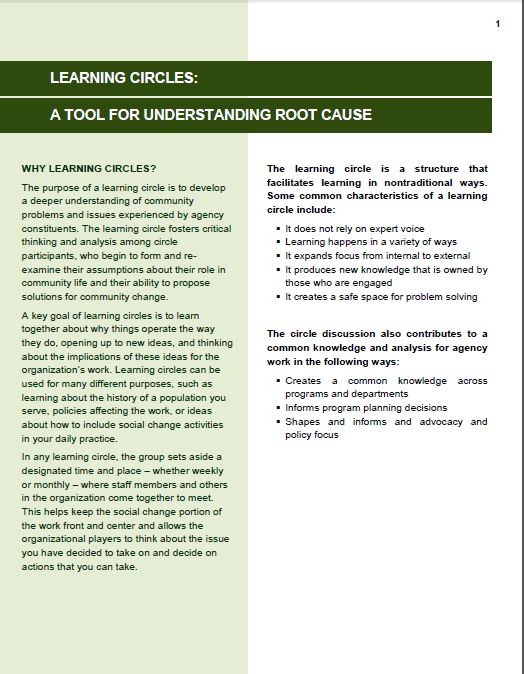
Learning Circles for Root Cause Analysis
This handout from BMP offers information and a process to engage staff and constituent partners in learning circles focused on root cause analysis. It describes how to organize the leaning circle, set it up for success and provides tips for the facilitator.
The purpose of a learning circle is to develop a deeper understanding of community problems and issues experienced by agency constituents. The learning circle fosters critical thinking and analysis among circle participants, who begin to form and re-examine their assumptions about their role in community life and their ability to propose solutions for community change.
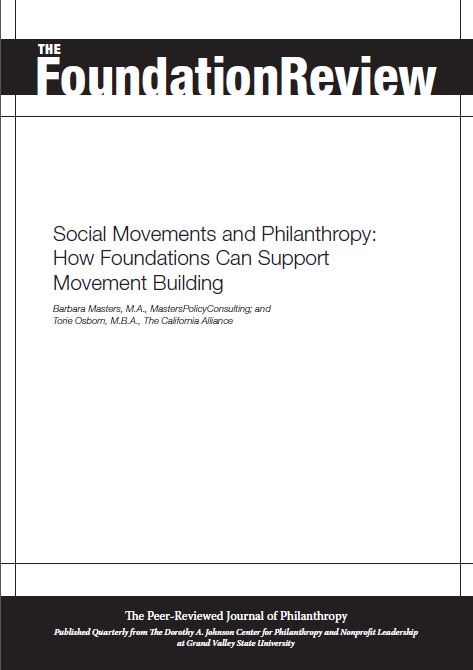
Social Movements and Philanthropy: How Foundations Can Support Movement Building
On page 17 of this report, social service organizations are identified as places that have not been organized to contribute to social change efforts. The author cites the Building Movement Projects Social Service and Social Change: A Process Guide (http://www.buildingmovement.org/blog/entry/22?news/entry/22) as a tool to increase engagement as well as noting other strategies for recruitment.
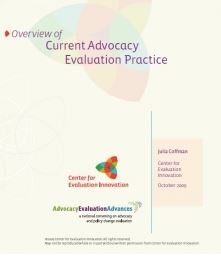
Overview of Current Advocacy Evaluation Practice
This brief offers an overview of current practice in the new and now rapidly growing field of advocacy evaluation. It highlights the kinds of approaches being used, offers specific examples of how they are being used and who is using them, and identifies the advantages and disadvantages of each approach.
